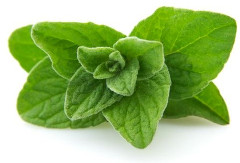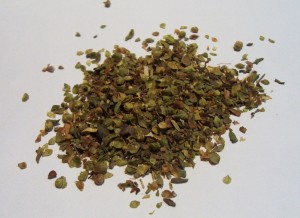Oregano compound induces programmed cell death in cancer cells
Carvacrol – most studied compound in oregano oil
Carvacrol (cymophenol) is a monoterpenic phenol that has been referenced in several scientific research studies as a powerful antibacterial agent against pathogenic fungi, yeast and bacteria as well as human, animal and plant pathogenic micro-organisms including drug-resistant and bio-film forming micro-organisms [1,2]. It is present in Thymus vulgaris, Carum copticum, origanum and oregano essential oils [3].
Studies have shown anti-tumor effects of carvacrol on human metastatic breast cancer cells, MDA-MB 231, indicating that the compound could have a potential therapeutic significance in treating cancer [4].
At the Experimental Biology 2012 conference, held April 21 to 25 in San Diego, it was reported that carvacrol, a compound found in oregano, induces apoptosis (programmed cell death) in cultured prostate cancer cells [5]. Apoptosis is programmed cell death, something that occurs naturally in “healthy cells” but does not happen in cancer cells, leading to an uncontrolled cell growth and cancer development.
Dr Supriya Bavadekar, PhD, RPh and her colleagues at Long Island University in Brooklyn administered increasing concentrations of carvacrol to androgen-sensitive metastatic human prostate cancer cells and assessed cell viability after 48 and 96 hours. The team observed a dose-dependent effect for carvacrol, due to the induction of apoptosis. The study is the first to reveal an antiproliferative effect for the compound in prostate cancer cells.
“We know that oregano possesses antibacterial as well as anti-inflammatory properties, but its effects on cancer cells really elevate the spice to the level of a super-spice like turmeric,” stated Dr Bavadekar (assistant professor of pharmacology at Long Island University’s Arnold & Marie Schwartz College of Pharmacy and Health Sciences). Oregano is an spice regularly used in culinary recipes, pizza and even an important part of the Mediterranean diet, considered in general as safe.
“Some researchers have previously shown that eating pizza may cut down cancer risk,” she noted. “This effect has been mostly attributed to lycopene, a substance found in tomato sauce, but we now feel that even the oregano seasoning may play a role. Dr. Bavadekar said that the initial data indicates “a huge potential in terms of carvacrol’s use as an anti-cancer agent”, and “If the study continues to yield positive results, this super-spice may represent a very promising therapy for patients with prostate cancer,”.
Apigenin – another compound of oregano
Oregano also contains other anti-tumour compounds, such as apigenin [6,7].
Apigenin is a natural flavonoid found in many herbs and fruits, as for example Chamomile (Anthemis nobilis). Other apigenin food sources include apples, celery and also some spices as oregano, tarragon, cilantro, basil, parsley, onions, oranges, tea, chamomile and wheat sprouts. Other herbs as endives and cloves have also a considerable amount of this active constituent.
Oregano Also Kills Norovirus!
Oregano oil and carvacrol have also been shown to be effective against norovirus (MNV) by inactivating it within 1 h of exposure. Carvacrol has therefore potential as a natural food and surface (fomite) sanitizer to control human norovirus [8].
Flavonoids Reduce Cancer Risk in General
Recent studies on different types of flavonoids and the benefits of a high dietary intake of fruits and vegetables suggest that the intake of fruits and vegetables rich in certain types of flavonoids, mainly apigenin, epigallocatechin gallate, delphinidin and genistein appear to be associated with a lower incidence and risk of cancer [9].
CONCLUSION
Oregano, with its various compounds, has anti-bacterial, anti-inflammatory and anti-tumour compounds.
Prostate cancer is generally very slow-growing, so the recent trend is to opt for surveillance for many patients rather than have immediate treatment [10]. With oregano compounds having been shown to be anti-bacterial, anti-fungal and to induce apoptosis of tumour cells, you could do worse than add oregano to your diet whether you are male or female.
High intake of fruit and vegetables rich in flavonoids appear to seem to be protective against cancer. Yet another reason to eat more fruit and vegetables!
References



